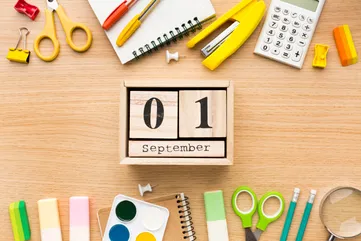Homework Strategies
Homework strategies are specific techniques and systems that help teens complete assignments efficiently while maintaining quality and reducing stress.
You're not alone
If homework takes hours longer than it should, or nightly battles exhaust everyone, better strategies are needed. Many parents assume teens naturally develop homework skills without explicit teaching. Every teen needs different approaches based on their brain, energy patterns, and challenges. Families developing personalized homework strategies report reduced conflict and improved completion.
What it looks like day to day
Student
Your teen uses subject rotation every 30 minutes to maintain focus, completing homework in less time with better quality.
Parent
You see your teen independently implementing their homework routine rather than needing constant prompting and supervision.
Tiny steps to try
Build personalized homework strategies through experimentation.
- 1
Energy-based scheduling
Tackle hardest subjects during peak mental energy. Save routine work for lower energy.
- 2
Environment optimization
Find ideal noise level, lighting, and seating. Some need silence; others need [background music](/the-parent-bit/study-skills-for-high-schoolers-mastering-note-taking).
- 3
Pomodoro adaptation
Adjust work/break ratios to attention span. Maybe 15/5 works better than 25/5.
- 4
Subject interleaving
Mix subjects rather than completing one entirely. Variety maintains engagement.
- 5
Closing rituals
Pack backpack and review tomorrow's needs immediately after homework. Prevent morning scrambles.
Why homework needs strategy
Approaching homework randomly leads to inefficiency, poor quality, and unnecessary stress. Strategic approaches optimize time, energy, and outcomes.
Effective homework strategies address:
• When and where to work
• Subject sequencing
• Break timing and structure
• Distraction management
• Resource organization
• Energy optimization
The right strategies transform homework from daily battle to manageable routine.
References
Cooper, H., Robinson, J. C., & Patall, E. A. (2016). Does homework improve academic achievement? A synthesis of research, 1987-2003. Review of Educational Research, 76(1), 1-62.
Ramdass, D., & Zimmerman, B. J. (2011). Developing self-regulation skills: The important role of homework. Journal of Advanced Academics, 22(2), 194-218.
Ready to help your teen thrive?
Get personalized 1-on-1 coaching to build better habits and boost grades. Join 10,000+ families who trust Coachbit.
Frequently Asked Questions
Should parents help with homework or let teens struggle?
Balance support with independence. Teach strategies and provide structure without doing work for them. Be available for questions without hovering. If teens consistently struggle despite strategies, evaluate for underlying learning differences or gaps. The goal is building competence, not creating dependence or allowing failure.
What if school's recommended strategies don't work for our teen?
Schools often teach strategies that work for average students. Your teen might need different approaches. Document what works and communicate with teachers about successful alternatives. Most teachers accept different methods if outcomes improve. Advocate for your teen's learning style while respecting classroom requirements.
Related Terms
Focus Strategies
Focus strategies are specific techniques and environmental modifications that help teens maintain attention on tasks despite internal and external distractions.
Organization
Organization is the ability to create and maintain systems for managing materials, information, and time in ways that support efficiency and goal achievement.
Study Skills
Study skills are the strategies and techniques that help students learn effectively, retain information, and perform well academically.
Time Management
Time management is the ability to plan, prioritize, and use time effectively to accomplish tasks and meet deadlines without constant crisis.
Related Articles

Study Skills for High Schoolers – Mastering Note-Taking
Study strategies are vital to supporting high schoolers in their learning. Organized note-taking can provided a deeper understanding of subject material.
Read article
3 Ways an Executive Functioning Coach Can Help Your Child
Discover why executive functioning skills are crucial for your child's success. Learn how an executive functioning coach can make a difference
Read article
Finding Order in the Chaos – Setting up Calendars for Kids
Creating a calendar and daily schedule for kids can be beneficial to manage school, homework, extracurriculars and hobbies. Color-coding and time-blocking are helpful tools for kids with ADHD.
Read article
